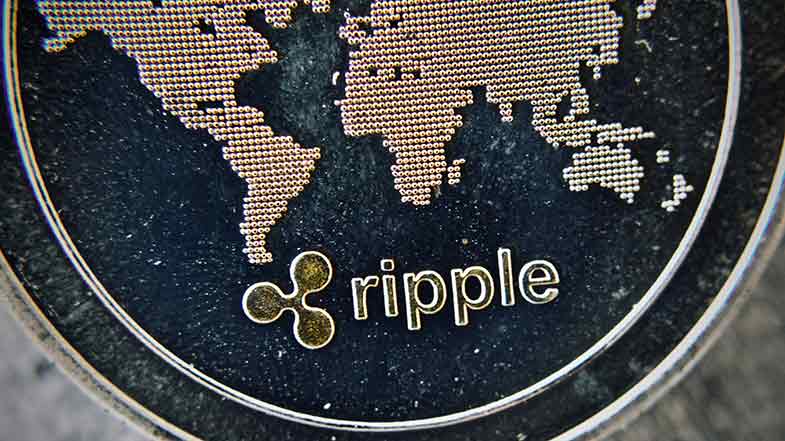The Securities and Exchange Commission (“SEC”) and Ripple have dominated crypto related news since the SEC filed a lawsuit against Ripple Labs Inc. and two of its high-profile executives late last year. At the heart of the lawsuit is the SEC contention that Ripple and two executives Christian Larsen, the co-founder and the ex-CEO of the company and current CEO, Bradley Garlinghouse raised of $1.3 billion through an unregistered, ongoing digital asset securities offer. The complaint alleges the defendant’s failure to register the digital assets offering was in violation of federal securities law registration provisions.
It is never a good thing for a business concern to be sued by a governmental entity, especially a powerful agency such as the SEC. The lawsuit will likely get significant airplay and attention from new Biden appointees (subject to congressional approval), that include Gary Gensler heading up the SEC, Janet Yellen heading up the Treasury, and former adviser to Ripple, Michael Barr heading up the Comptroller of the Currency (“OCC”) post recently vacated by blockchain and crypto friendly, acting Comptroller Brian Brooks.
XRP: A Security Or A Currency?
In layman terms, the heart of the SEC issue with Ripple evolves around whether XRP should be considered a security, or is really cryptocurrency?
So, what exactly is XRP? Many view XRP as a native currency option available to function on the Ripple network as a coin. The coin can be utilized by banks or other payment providers to execute faster payment settlements and at lower exchange costs.
So, what distinguishes the Ripple coin XRP from Bitcoin? In layman terms, Bitcoin is validated via a blockchain mining concept while XRP utilizes a unique distributed mechanism via servers to validate transactions. The lack of mining that XRP employs may have played a role in the SEC lawsuit.
Ripple has argued that “the functionality and liquidity of XRP are wholly incompatible with securities regulation. To require XRP’s registration as a security is to impair its main utility,’” argued the company.
Ripple has been anxious to impart that the XRP ledger is an open-source and decentralized ledger without a central leader which Ripple does not control. Ripple also points out that XRP operates based in large part on consensus, derived from a growing community of developers who use it to build new products.
Ripple recently clarified that if someone wishes to buy a share in the company they will have to invest in the company’s share, not in XRP.
The lawsuit and debate over whether XRP is a security like a bond or stock comes under the purview of SEC, and therefore if it is, it must be registered. It is estimated that the debate over XRP status as a security or a desirable bridge currency may likely take a while to play out, possibly lasting years.
This central question takes us back to 2015 when the U.S. Department of Justice and Treasury concluded in an agreement with the Financial Crimes Enforcement Network (FinCen) involving anti-money laundering and the Bank Secrecy Act issues, that XRP is indeed a currency. And Ripple is said to have been following the rules of these agencies regarding digital currencies for the last 5 years.
However, this conclusion or judgement stands nowhere in the path of SEC which alleges that Ripple’s association and market use of XRP fails to meet standards set by the legislation dealing with investment contracts under the Howey Test. This test implies XRP investments should be disclosed as securities according to the SEC.
The SEC in the last few years ruled that Bitcoin and Ethereum are not securities, but rather currencies on the grounds that no community, institute, or company has a control over it, and the coins are decentralized in nature. While on the other hand, XRP does not exhibit the same characteristics and is different from these two currencies.
XRP differs from Bitcoin and Ethereum in that, utilizing a gradual, ongoing transaction validation process called mining, the latter two currencies are added to a blockchain digital ledger. Larsen and others, by comparison, produced 100 billion XRP units in one fell swoop for a company called Ripple Labs in 2012. Although Ripple continues to own XRP’s lion’s share, the bulk of its treasury is kept in reserve, to be sold in expected allotments. Also, Garlinghouse and Larsen each own a substantial amount of XRP. This arrangement led some analysts to consider XRP to be more akin to the stock of a corporation than to a currency.
So, What Now?
Currently Ripple or XRP is considered the third most valuable cryptocurrency behind Bitcoin and Ethereum. XRP is unique in that it has a narrow focus in that is was originally designed to address and solve for problems in international payment transfers with the goal of making them faster, cheaper, and more efficient. Traditionally international money transfers can take as long as a week, yet Ripple utilizing XRP can execute the payment in literally seconds and at a reduced fee. Hence, XRP is considered superior to Bitcoin as a payment vehicle in that it possesses fast settlement speed and a ledger that has been tested in real world settlement transactions for notable firms such as American Express and Banco Santander.
Despite the positive payment settlement aspects of the XRP coin, the SEC and critics point to company control of approximately half the coins, therefore the SEC feels it is a security.
In the meantime, Garlinhouse holds a different view and stated, “I think we have to stand up for all of the crypto—and not let the SEC bully the entire industry.”
There is more to come, and the industry is watching including Coinbase a well-established exchange that recently halted trading in XRP citing the SEC lawsuit.
#Crypto #Ripple #XRP #Banking #Payments www.stephengandrews.com www.fin-techadvocate.com

